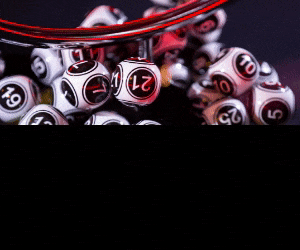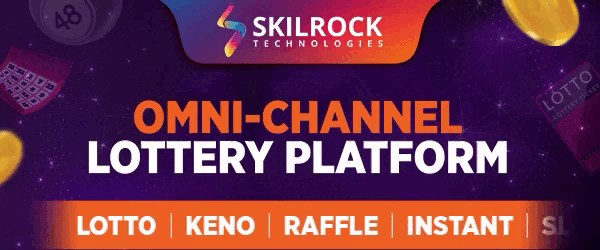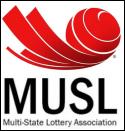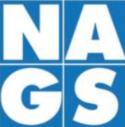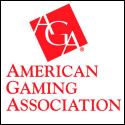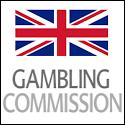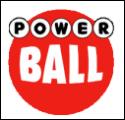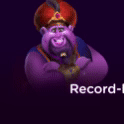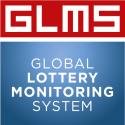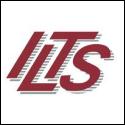Introduction to Gambling Law in Malta
Overview
i Definitions
Maltese law permits both online and land-based gambling, and the following forms of gambling are catered for: amusement games, casino gaming, commercial tombola games, commercial communication games, gaming devices, remote gaming, sports betting, the National Lottery and other lotteries, and non-profit games.
Gaming
Maltese law uses the term gaming to cover all gambling activities. The Gaming Definitions Regulations 2018 define gaming as any activity consisting of participating in a game of chance or a game of skill, offering a gaming service or making a gaming supply.
An operator provides a gaming service when it makes a game available for participation in by players (whether directly or indirectly, and whether alone or jointly with others) as an economic activity.
On the other hand, a gaming supply is defined as a supply, directly or indirectly, of goods or services, in relation to a gaming service, which is either a material gaming supply or ancillary gaming supply, but which does not include the provision of a key function, as outlined in Section III.
Authorisation is defined as a licence, approval, certificate, recognition notice or similar instrument issued by the Malta Gaming Authority (MGA or Authority), authorising a person to provide a gaming service, gaming supply or a key function.
Licence is defined as a gaming service licence or a critical gaming supply licence.
A game of chance means an activity the outcome of which is determined by chance alone or predominantly by chance and includes activities the outcome of which is determined depending on the occurrence or outcome of one or more future events.
Skill games
A game of skill or skill game is defined as an activity the outcome of which is determined by the use of skill alone or predominantly by the use of skill, but excludes a sport event, unless otherwise established by Maltese law. The MGA has the sole discretion to determine whether an activity is classified as a game of chance, a game of chance and skill or otherwise, and specific rulings may be obtained from the MGA upon submission of a request outlining the proposed game in detail.
Games of skill do not generally require a licence, unless they involve a stake to enable participation or offer the possibility of winning a prize of money or money’s worth, in which case they would constitute a controlled skill game and require a licence.
The burden of proving that an activity is a skill game (and therefore not licensable) rests on the party operating or promoting the activity.2
Fantasy sports
The only controlled skills game ruling3 issued by the MGA so far addressed fantasy sports, classifying them as controlled skills games, and therefore licensable. The MGA ruling defined fantasy sports as:
[A] contest offered by means of distance communications, wherein players commit a consideration of monetary value, whether in the form of a stake, periodic subscription or the purchase of in-game items which provide an advantage to the player, to compete against other players for the possibility to win a prize of money or money’s worth.
A fantasy sport contest is one where the outcome is determined by the accumulation of the statistical results of the performance of a number of individuals competing in actual sporting events.
The ruling excludes from the definition of fantasy sports the forecasting of the score of sporting events, point spread, or the result of any other future occurrence of one or multiple events. Essentially, the winning outcome must be predominantly determined through the skill or knowledge of the player. The onus of proving the existence of all these factors rests entirely with the applicant.
Lotteries
The National Lottery is Malta’s main lottery. The operation of all National Lottery games is exclusively granted through a concession, which was last awarded to National Lottery plc in November 2021. Subsequently, the MGA granted the gaming licence in July 2022, valid for 10 years.4 The provision of online lotteries is also allowed under Maltese law, and in this respect a remote gaming licence would need to be obtained.
Free prize draws
These types of games draws are exempt from requiring a licence in Malta, based on the principle that games of chance that do not require a stake to enable participation or do not envisage the possibility of a prize are classified as exempt.5 A gaming service or a critical gaming supply that is provided in relation to an exempt game does not require a licence or other authorisation.6
In the case of doubt, the MGA has the sole discretion to conclusively determine whether a game should be classified as exempt.7
De minimis games
Directive 3 of 2019 came into force on 1 February 2019. This Directive was issued in order to establish which games classify as a de minimis exempt game in terms of the Second Schedule to the Gaming Authorisations Regulations. Pursuant to Article 5 of Directive 3 of 2019, a de minimis game shall be a game that satisfies all of the following criteria cumulatively:
- a lottery or raffle-type game;
- the value of the stake to participate in the game is not more than €1;
- the value of the prize is not more than €100; and
- the result of the game is not based on the outcome of another game.
The Directive provides that each person or organisation cannot organise more than 10 de minimis games in any calendar year, and that no more than two de minimis games may be organised in any calendar month.
ii Gambling policy
Since the early 2000s, Malta has secured its position as a leading, serious and well-regulated European remote gaming jurisdiction and is estimated to host around 10 per cent of the world’s online gaming companies by trading volume. The government recognises the importance of the proper regulation of this industry, and its relevance for Malta’s economy. In keeping with this recognition, Malta has continued its drive to innovate the legal framework to keep up with industry and technological developments, and in August 2018, a new legal framework was implemented to address market and technological developments and consumer trends, providing a modern, sophisticated and solid framework for the regulation of remote gaming operators based in Malta or seeking to target the Maltese market. In addition, the MGA continually strives to clarify legal issues as they arise and provides much-needed legal certainty by regularly issuing rules and guidance documents.
iii State control and private enterprise
Gambling operations are not owned or operated by the state. However, the National Lottery may only be conducted under ministerial authority, or by any person in whose favour a concession is granted. Where government policy requires that certain gaming services may only be provided when in possession of a government concession, the MGA shall not issue a licence for the carrying out of such a gaming service unless the applicant is in possession of a relevant and valid government concession. This is the case for the country’s National Lottery, currently exclusively operated by National Lottery plc.
iv Territorial issues
Gambling is regulated and licensed nationally.
v Offshore gambling
The Gaming Act provides that where this Act or any other regulatory instrument prescribes an activity of whatever nature requires an authorisation to be performed, it shall be an offence to perform such an activity or to promote, aid, abet or otherwise facilitate such an activity unless it is duly authorised.8
If an operator is targeting Maltese players, is offering gambling from Malta or through a Maltese entity, and is not licenced by the authority but is authorised or licensed to operate under any European Union (EU) or European Economic Area (EEA) Member State or by any jurisdiction or territory approved by the MGA, such operator may apply for a recognition notice certificate issued by the MGA for legal and regulatory coverage to operate from or target the country.
Following Brexit, entities operating in or from Malta by virtue of an authorisation issued to them by the UK Gambling Commission are still eligible to apply for recognition with the MGA. This is pursuant to the UK being a state that is deemed by the Maltese Authority to offer safeguards largely equivalent to those offered by Maltese law.9
Since it is not in the MGA’s regulatory scope to issue an exhaustive list of approved jurisdictions that may be targeted by MGA-licensed operators, in the case of B2C operators, each operator is expected to ensure that the targeting of any games to players based in any jurisdiction outside of Malta is so targeted in full compliance with the laws of that foreign jurisdiction. The MGA also requires the terms and conditions of each licensee to state that it is the players’ responsibility to establish whether their gaming activity is legal according to the laws of the country where such player is based.
In the case of B2B operators, the MGA will only allow the cross-border provision of these B2B services to B2Cs licensed by competent authorities within the EU or EEA, or in any other well-regulated jurisdiction.
Since it is not in the MGA’s regulatory scope to issue an exhaustive list of approved jurisdictions that may be targeted by MGA-licensed operators, in the case of B2C operators, each operator is expected to ensure that the targeting of any games to players based in any jurisdiction outside of Malta is so targeted in full compliance with the laws of that foreign jurisdiction. The MGA also requires the terms and conditions of each licensee to state that it is the player’s responsibility to establish whether their gaming activity is legal according to the laws of the country where the player is based.
In the case of B2B operators, the MGA will only allow the cross-border provision of these B2B services to B2Cs licensed by competent authorities within the EU or EEA, or in any other well-regulated jurisdiction.
Legal and regulatory framework
i Legislation and jurisprudence
As of March 2021, the legislative framework governing gaming in Malta consists of the Gaming Act, Chapter 583 of the Laws of Malta and subsidiary legislation 583.03–583.12. The MGA has also issued a number of directives and guidance notes between 2018 and 2023 that are binding on licensees and provide additional guidance to operators in adopting and implementing the laws and regulations.
ii The regulator
The MGA is the primary regulatory body responsible for the governance of all gaming activities in Malta, and this includes both land-based and remote gaming sectors. Its main functions include the issuance of licences, approvals, certificates and recognition notices and the monitoring of the conduct of operators in the field. Furthermore, the MGA is responsible for preventing, detecting and combating criminal activity in the gaming sector, as well as ensuring that games are operated and advertised fairly and responsibly.
iii Remote and land-based gambling
While both remote and land-based gambling are permitted in Malta, there are some differences in the regulations that apply to each. By way of example, applicants for a land-based gaming licence are required to seek and obtain approval not only for the gaming devices used, but also for the premises from which the licensed gaming devices are operated. The Gaming Authorisations Regulations10 provide that operators in both sectors require a licence, unless exempt.11
iv Land-based gamblingCasinos
Casinos are licensed by the MGA; however, obtaining such a licence is dependent on the applicant holding a specific concession from the government to operate the casino. There are currently four licensed casinos operating in Malta.
Betting shops and arcade centres
Controlled gaming premises12 such as betting shops and arcade centres must be licensed, and any person renting out or allowing another person to use premises as gaming premises must ensure that the lessee is in possession of a valid approval or licence. Controlled gaming premises differ from gaming premises (casinos) since the latter requires a government concession, whereas controlled gaming premises only need a licence from the Authority.
Bingo halls
Also known in Malta as tombola, these facilities offer the Spanish game of bingo. The numbers range from one to 90, and participants can win cash for the line, house or progressive jackpot. There are currently four approved bingo halls on the island.
Lottery ticket and sale venues
A valid permit is required to sell tickets for the National Lottery. An application for this permit is to be made to the MGA by the proposed seller.13
v Remote gambling
Any person providing or carrying out a gaming service14 or providing a critical gaming supply15 from Malta or to any person in Malta, or through a Maltese legal entity, must possess a valid licence or be explicitly exempt from the requirement of a licence16 under the Gaming Act or any other regulatory instrument.
The MGA may issue a gaming service licence (B2C) or a critical gaming supply licence (B2B), where both licences are issued with one or more of the below game types:
- Type 1 gaming services: games of chance played against the house, the outcome of which is determined by a random number generator, and which includes casino-type games, including roulette, blackjack, baccarat, poker played against the house, lotteries, secondary lotteries and virtual sports games.
- Type 2 gaming services: games of chance played against the house, the outcome of which is not generated randomly but is determined by the result of an event or competition extraneous to a game of chance, and whereby the operator manages his or her own risk by managing the odds offered to the player.
- Type 3 gaming services: games of chance not played against the house and wherein the operator is not exposed to gaming risk, but generates revenue by taking a commission or other charge based on the stakes or the prize, and shall include player-versus-player games such as poker, bingo, betting exchange and other commission-based games.
- Type 4 gaming services: controlled skill games.17
In instances where a game displays element that may be categorised under one or more of the game types, the MGA has complete discretion to categorise the game as the type it believes most closely reflects the nature of the game.18
Corporate group licences
Where more than one company within a corporate group would like to obtain a licence, an application for a B2B or B2C corporate group licence may be submitted to the MGA. A B2C corporate group licence may cover entities within the structure that provide critical gaming supplies solely to other entities within the same group. In such instances, an additional B2B licence would not be required by such entities. However, should entities within the B2C corporate group licence provide critical gaming supplies in or from Malta to entities outside of the corporate group, a separate B2B licence would be required. Corporate entities that are to be covered by the corporate group licence must:
- be established in Malta or another EU or EEA jurisdiction. For UK entities, these must have an establishment19 set up within the EU or EEA;
- be at least 90 per cent owned by the same shareholder or ultimate beneficial owner;20 and
- provide to the group a service related to gaming (whether critical, material or non-material).
Recognition notice
Any persons offering licensable games in or from Malta, or through a Maltese-registered entity without an authorisation issued in terms of these Maltese regulations, but under an authorisation issued by another Member State of the EU or EEA or a state deemed by the MGA to offer equivalent safeguards to those offered by Maltese law, may apply to the MGA to have that authorisation recognised in Malta through the issuing of a recognition notice. Once obtained, a recognition notice grants its holder the same benefits as an authorisation issued by the MGA for the purposes of providing a gaming service or critical gaming supply in or from Malta.21
vi Ancillary matters Junkets
Authorised persons holding a licence from the MGA or a concession from the government of Malta seeking to hold a junket event22 are required to apply to the MGA for prior approval.
Amusement machines
Despite their exempt status, amusement machines cannot be placed on the market or made available for sale or distribution or use in any manner in any gaming premises unless the machine has been registered with the MGA, and any applicable administrative fees paid.
Low-risk games
Certain low-risk games, such as non-profit games where the value of the stake does not exceed €5 per player, merely require a low-risk games permit from the MGA. This permit is valid only for the singular event or events for which it is granted and expires once the event or events are concluded. Furthermore, it cannot be renewed or transferred without the MGA’s prior approval.
Cruise casinos
Cruise casino operators require a cruise casino permit from the MGA. However, this permit is only valid for a term not exceeding the time during which the cruise ship is moored at or within Maltese territory, and only in relation to registered passengers of the cruise ship. Cruise casino permits are non-transferable and limited to all cruise ships23 with the exception of vessels or aircraft flying or entitled to fly the flag of Malta, or registered in Malta, while the vessel or aircraft is navigating or flying outside and beyond the territorial waters of Malta.
vii Financial payment mechanisms
In accordance with the MGA Outsourcing Policy, authorised persons may only outsource payment processing services (such as accepting deposits from customers, processing withdrawals, and in general the control over the relevant payment accounts and the contractual arrangements entered into with credit, financial or payment institutions that process payments on behalf of licensees) to entities holding an MGA authorisation, whether by virtue of a corporate group or gaming licence or recognition notice certificate.
On 30 January 2023, the MGA issued a policy on the use of distributed ledger technology (DLT) by authorised persons following a consultation period with the industry on the Sandbox Regulatory Framework initiated in 2018. Such policy outlines the parameters whereby operators may accept virtual financial assets (VFAs) or virtual tokens, the latter within a closed-loop ecosystem. Applicants may also use innovative technology arrangements, such as smart contracts (contemplated by the Innovative Technology Arrangements and Services Act24) and DLT platforms. As part of determining eligibility to obtain a licence, authorised persons shall be required to submit a legal opinion signed by an advocate warranted in the EU or EEA confirming the nature of the DLT assets in terms of the Virtual Financial Assets Act (Chapter 590 of the Laws of Malta), as well as identifying any outsourced third-party service providers providing custodial wallet services or accepting VFAs from players (while allowing operators to deal solely in fiat currency).
By: Andrew J Zammit, Jackie Mallia and James Bartolo
SOURCES: GVZH Advocates – Lexology.




